Lamb Liver (28th October 2021):
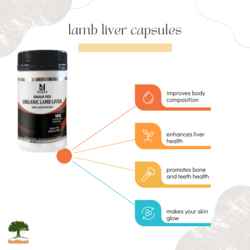 Many different animals’ livers are consumed all over the world, thus you may get beef, chicken, pork, lamb, and goose liver in butcher shops and grocery stores all around the country. As a kitchen staple, the liver has gone through phases of popularity, and it’s starting to make a comeback. The liver is a nutrient-dense organ. It’s high in protein, low in calories, and brimming with vitamins and minerals. This article delves into the benefits of the liver and why it should be a part of your diet.
Many different animals’ livers are consumed all over the world, thus you may get beef, chicken, pork, lamb, and goose liver in butcher shops and grocery stores all around the country. As a kitchen staple, the liver has gone through phases of popularity, and it’s starting to make a comeback. The liver is a nutrient-dense organ. It’s high in protein, low in calories, and brimming with vitamins and minerals. This article delves into the benefits of the liver and why it should be a part of your diet.
What actually is liver?
In both humans and animals, the liver is a vital organ. It is the largest internal organ and serves a variety of tasks, including food procession in the intestines after it has been digested, storing iron, glucose, vitamins and other essential nutrients and filtering drugs and toxins from the bloodstream. People frequently go to fruits and vegetables for vitamins and minerals, yet the liver has considerably more nutritious content than any other food. One of the best animal-based sources of vitamin A is the liver. Beef liver, for example, offers more than 100% of your daily vitamin A requirement in a single meal.
Nutritional Information
The liver has an exceptional nutritional composition. A 3.5-ounce (100-gram) serving of beef liver offers the following nutrients:
Vitamin A- It contains 860–1,100% of the recommended dietary intake. Vitamin A is a vital nutrient for healthy vision, immunity, and reproduction. It also aids the healthy functioning of organs such as the heart and kidneys.
Iron- Iron is another crucial component that aids in the transport of oxygen throughout the body. Heme iron, the most easily absorbed kind of iron, is found in the liver. About 80% of the recommended dietary of iron is found in a 3.5-ounce serving of liver.
Folate (B9)- Folate is a nutrient that is necessary for cell proliferation and the creation of DNA. About 60% of the recommended dietary intake of folate is found in the above-mentioned serving of liver.
Vitamin B12- It contains 3,460% of the recommended dietary intake of B12. The production of red blood cells and DNA is aided by vitamin B12.
Riboflavin (B2): Riboflavin is required for the formation and operation of cells. In addition, it aids in the conversion of food to energy. A single serving of 3.5 ounces of liver offers 65% of the recommended dietary intake of B2.
Copper- Copper works like a key to activating a variety of enzymes that help regulate energy production, iron metabolism, and brain function. 1,620% of the recommended dietary intake of copper is found in the said serving of liver.
Choline- For women, the liver provides all of their adequate intake of choline, while for men, it gives nearly all of it. Choline is necessary for brain and liver development.
What are the benefits of eating liver?
Natural storehouse of Vitamin A– Vitamin A is a stimulant for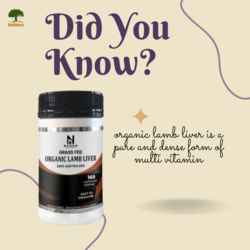 various metabolic processes and is rich in organ meats from pastured animals. Vitamin A is necessary for the prevention of birth abnormalities, infection, thyroid function, digestion, vision, hormone production, and bone and blood health. Your body can’t use protein, minerals, or water-soluble vitamins without it. Vitamin A is an antioxidant that protects against pollution, free radicals, and cancer. Contrary to popular belief, the type of vitamin A received from plants (carotene) differs significantly from that obtained from animals. Carotenes, which can be found in brightly coloured fruits and vegetables, are a powerful antioxidant that can be converted into genuine vitamin A in the upper intestine, but many people are unable to do so, especially if their diets are low in fat. Vitamin A obtained from real, whole foods is an essential component for human health that causes no difficulties until consumed in excessively large levels.
various metabolic processes and is rich in organ meats from pastured animals. Vitamin A is necessary for the prevention of birth abnormalities, infection, thyroid function, digestion, vision, hormone production, and bone and blood health. Your body can’t use protein, minerals, or water-soluble vitamins without it. Vitamin A is an antioxidant that protects against pollution, free radicals, and cancer. Contrary to popular belief, the type of vitamin A received from plants (carotene) differs significantly from that obtained from animals. Carotenes, which can be found in brightly coloured fruits and vegetables, are a powerful antioxidant that can be converted into genuine vitamin A in the upper intestine, but many people are unable to do so, especially if their diets are low in fat. Vitamin A obtained from real, whole foods is an essential component for human health that causes no difficulties until consumed in excessively large levels.
A comparatively low-calorie option– Liver is one of the most nutrient-dense foods available, as per calorie. Muscle meats, which are more typically consumed, are nutritionally deficient in comparison. Over 200 calories are found in a 3.5-ounce(100-gram) sirloin steak or lamb chop. A serving of cow liver includes only 175 calories while supplying significantly more vitamins and minerals than a sirloin steak or a lamb chop. When cutting calories, it’s easy to miss out on essential nutrients. As a result, choosing nutrient-dense foods is essential. There are various foods that offer high-quality protein, vitamins, and minerals but no food has the same variety or quantity of nutrients as the liver. Furthermore, it has been proven that eating meals high in nutrients but low in calories reduces appetite.
Enhances bone health– Vitamin K is abundant in the liver and is essential for bone health. Vitamin K aids in the absorption of calcium and its incorporation into your bones. As a result, it aids in the preservation of your skeletal system’s strength. Vitamin K deficiency has been related to an increased risk of chronic illnesses including osteoporosis. Vitamin K is also necessary for the proper functioning of your cardiovascular system.
Reduced risk of anaemia– One of the most frequent mineral deficits is iron deficiency. Anaemia caused by iron deficiency can cause weariness, muscle weakness, and a loss of concentration. The liver is a good source of iron and vitamin B12, which work together to keep your blood cells healthy and functioning. In fact, consuming beef liver on a regular basis was one of the first remedies for pernicious anaemia. Today, incorporating a few doses of iron into your weekly diet can assist in the treatment or prevention of anaemia.
Storehouse of proteins– Protein is found in practically every part of the body and is essential to survival. It is necessary for the formation and repair of cells, as well as the conversion of food into energy. Protein makes up more than a quarter of cow liver. It’s also a high-quality protein because it contains all of the essential amino acids. Proteins are made up of amino acids and some amino acids can be produced by the body, but essential amino acids must be obtained from food. Protein consumption has been demonstrated to aid weight loss by reducing hunger and appetite. Moreover, protein has been shown to fulfil hunger more effectively than fat or carbohydrates.
Know Where Your Food Is Sourced
It is crucial to obtain organ meats from grass-fed animals. Organ meats from “conventionally” bred animals who spend their lives in enclosed animal feeding operations should be avoided at all costs. Such animals’ diets, veterinary medications, and living conditions are unlikely to produce healthy, nutrient-rich organs. That is why you should make it a habit to inquire where the organs came from if you decide to buy them at your local supermarket. It’s best to limit your meat consumption to pastured or, at the very least, grass-finished animals.
How should you consume liver?
 Liver has a distinct flavour that some people enjoy and others despise. It can be eaten raw or prepared in a variety of ways. Here are some ideas for incorporating it into your diet:
Liver has a distinct flavour that some people enjoy and others despise. It can be eaten raw or prepared in a variety of ways. Here are some ideas for incorporating it into your diet:
The easiest way to make it is to pan fry the liver with onions.
Chopped or minced liver can be blended with ordinary ground beef to make the stuffing for burgers.
Spaghetti Bolognese can be topped with chopped or minced liver.
Those who are bothered by the strong flavour of beef liver can use calf or lamb liver instead as they have a milder flavour.
It is a good idea to soak the liver in lemon juice or even milk before cooking it. This will mellow down the strong flavour.
If you’re not ready to eat liver yet, high-quality liver supplements can be taken instead. In its purest, most natural form, a high-quality liver supplement functions as a multivitamin, plus a B complex, in capsule or tablet form. In its purest, most natural form, a high-quality liver supplement functions as a multivitamin plus a B complex in capsule or tablet form. It’s an excellent supplement for people who suffer from anaemia, low energy, adrenal exhaustion, thyroid problems, autoimmune disease, poor cellular function, or even cancer.
What is the right amount of liver to consume?
One 100-gram serving of cow, lamb, bison, or duck liver once or twice a week is recommended. It provides approximately 50,000 IU Vitamin A, per serving. Chicken liver, which has less vitamin A, can be eaten more regularly.
An alternative to beef- all about lamb liver
Beef liver benefits are probably well known to carnivore diet lovers. However, gaining knowledge about the nutrients and advantages of lamb liver may still be on your bucket list–and for good reason. Lamb liver has many of the same advantages as beef liver, as well as a few of its own. For thousands of years, humans have recognised and cherished lamb liver. As one might think, it’s proven most popular in locations where lambs, rather than cows, are the predominant food supply.
Nutritional information
The great nutritional diversity of lamb liver is one of its best qualities. In addition to its fundamentals (B12, vitamin A, and so on), the liver includes a plethora of difficult-to-obtain minerals. Lamb liver is particularly strong in heme iron, B vitamins, vitamin A, and selenium. The following table contains the nutritional information of lamb liver per 100 gram:
Calories-138
Protein – 20.4 grams
Carbohydrate- 1.8 grams
Calcium- 1%
Iron- 41%
Copper- 349%
Saturated fat- 1.9 grams
Phosphorous-36%
Zinc- 31%
Vitamin C- 7%
Vitamin A- 492%
Vitamin B6- 45%
Vitamin B12- 1501%
Niacin- 81%
Benefits of consuming lamb liver
Improves body composition– It could be an excellent diet for those looking to improve their body composition. Its low fat and high protein content offers the most satisfaction per calorie. According to research, consuming protein-rich meals can lower hunger hormone levels and lessen cravings. The selenium and B vitamins found in the liver may also be beneficial to your body composition, as these minerals have been shown to improve metabolism via different, but overlapping, routes.
Enhances liver health– Regular eating of lamb liver may be beneficial to your liver. This like-supports-like effect is due to the presence of the CP450 enzyme. We humans, too, rely on CP450 to function optimally. Anti-fatigue factors present in the liver may also be beneficial. Animal organs make it simple to achieve a healthy diet.
Promotes bone and teeth health– One of the few non-fermented sources of vitamin K2 is lamb liver. According to research K2 plays various roles in our body system including strengthening of bones, assisting with transportation of calcium, whitening and brightening of teeth, promoting collagen turnover, reducing calcification of soft tissues, and improving immunity.
Makes your skin glow– Together with K2, the vitamin C and copper concentration of lamb liver makes it excellent for your skin. Vitamin A also has a part in this. Vitamin A improves skin cell tone, texture, and turnover, according to a growing body of studies.
Athletic performance may improve– It contains so many B vitamins that it may directly increase your sports performance. Energy production is the single most important rate-limiting factor in many sports, and B vitamins aid in this on an inherent, cellular level. In fact, virtually every sort of animal liver is a true superfood for hard-training athletes.
Lamb liver sourcing
Finding high-quality lamb liver is not always simple. Even if you do discover superior grass-fed lamb liver, you may not like the taste. That is where the value of liver supplements comes into play for many people.
Potential risks of consuming animal liver
Because liver contains such a high concentration of nutrients, you should talk to your doctor before increasing your liver consumption significantly. Consuming large amounts of liver might be disadvantageous to people who are trying to reduce their cholesterol levels. When you eat a lot of liver, you can get vitamin A poisoning symptoms. Because your liver is unable to handle excess vitamin A rapidly enough, eating a large amount of liver on a daily basis may result in hypervitaminosis A. To avoid these side effects, most doctors recommend that adults without vitamin deficiencies eat only one serving of liver per week.
Final Thoughts
One of the simplest methods to ensure that you’re eating a balanced, nutrient-dense diet is to eat a range of foods from both the plant and animal kingdoms. The liver is an underappreciated food. It’s low in calories and high in high-quality protein, but it’s also packed with essential nutrients. If you haven’t tried liver yet, don’t dismiss it right away. You might end up liking it.
Healthboost Products:
-
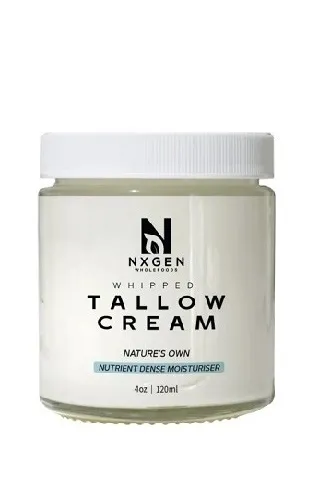
Organic Whipped Tallow Cream 120ml
$34.50Add to cart -
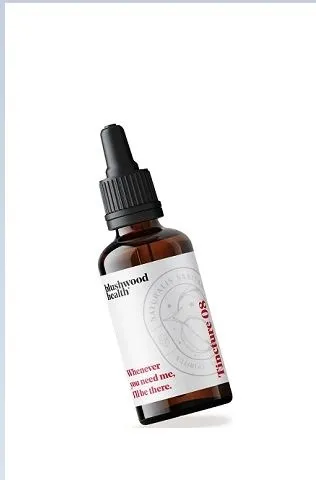
Blushwood Berry Seed Extract EBC-46 Tincture
$120.95Add to cart -
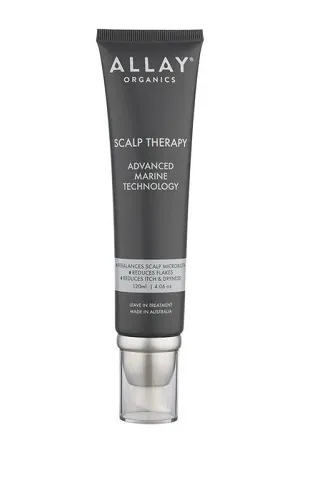
Scalp Therapy Advanced Marine Technology Allay Organics
$48.50Add to cart -
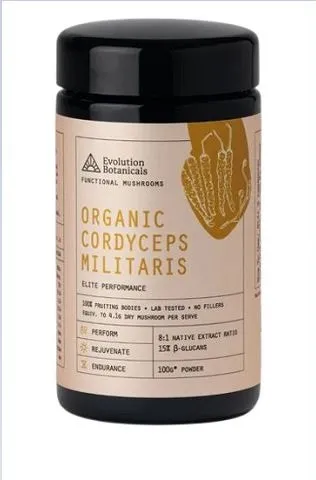
Organic Cordyceps Militaris Evolution Botanicals
$72.99Add to cart -
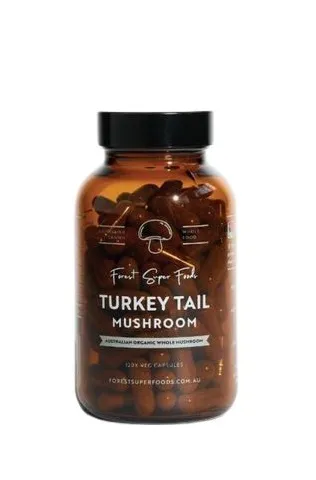
Turkey Tail Mushroom Super Foods
$79.99Add to cart -

Cordyceps Mushroom Forest Superfoods
$89.00Read more
[bmi]
